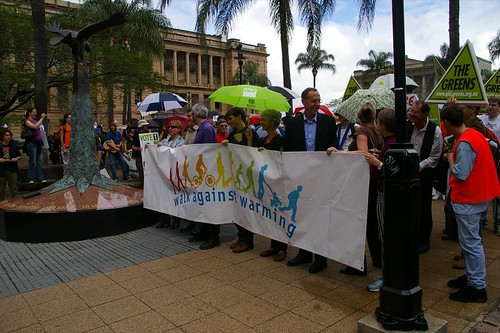September 14, 2007
From Environmental News Service
Some statistics from the Vital Signs report
- In 2006, the world used 3.9 billion tons of oil. Fossil fuel usage in 2005 produced 7.6 billion tons of carbon emissions, and atmospheric concentrations of carbon dioxide reached 380 parts per million.
- More wood was removed from forests in 2005 than ever before.
- Steel production grew 10 percent to a record 1.24 billion tons in 2006, while primary aluminum output increased to a record 33 million tons. Aluminum production accounted for roughly 3 percent of global electricity use.
- Meat production hit a record 276 million tons (43 kilograms per person) in 2006.
- Meat consumption is one of several factors driving rising soybean demand. Rapid expansion of soybean plantations in South America could displace 22 million hectares of tropical forest and savanna in the next 20 years.
- The rise in global seafood consumption comes even as many fish species become scarcer: in 2004, 156 million tons of seafood was eaten, an average of three times as much seafood per person than in 1950.
- The warming climate is undermining biodiversity by accelerating habitat loss, altering the timing of animal migrations and plant flowerings, and shifting some species toward the poles and to higher altitudes.
- The oceans have absorbed about half of the carbon dioxide emitted by humans in the last 200 years. Climate change is altering fish migration routes, pushing up sea levels, intensifying coastal erosion, raising ocean acidity, and interfering with currents that move vital nutrients upward from the deep sea.
- Despite a relatively calm U.S. hurricane season in 2006, the world experienced more weather-related disasters than in any of the previous three years. Nearly 100 million people were affected.
...
Read the article.





No comments:
Post a Comment